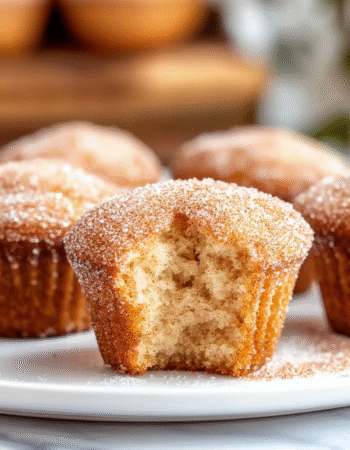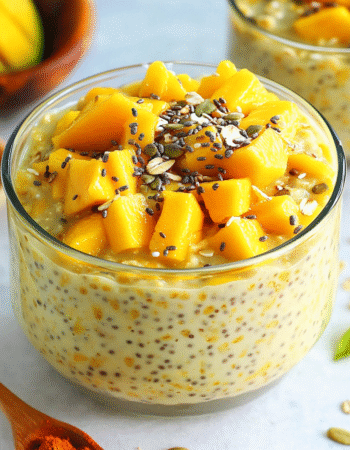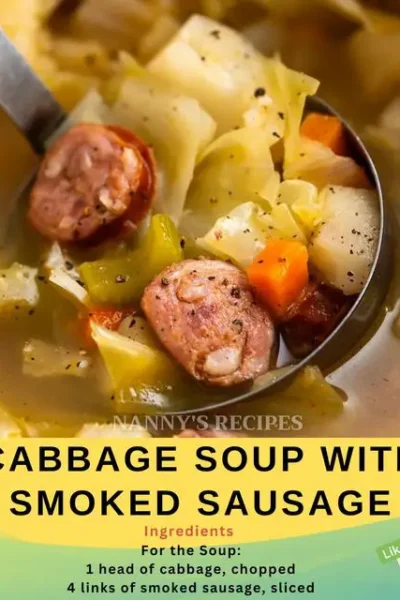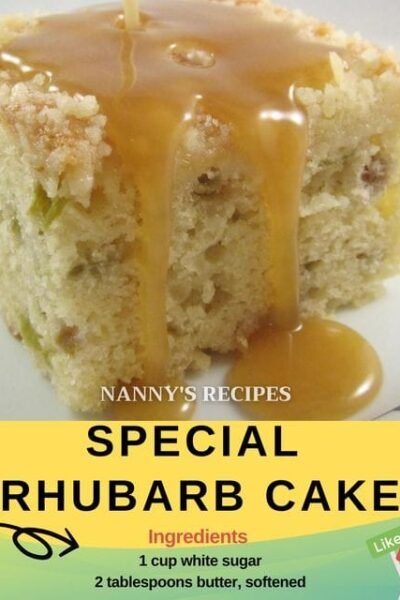German Potato Pancakes Recipe
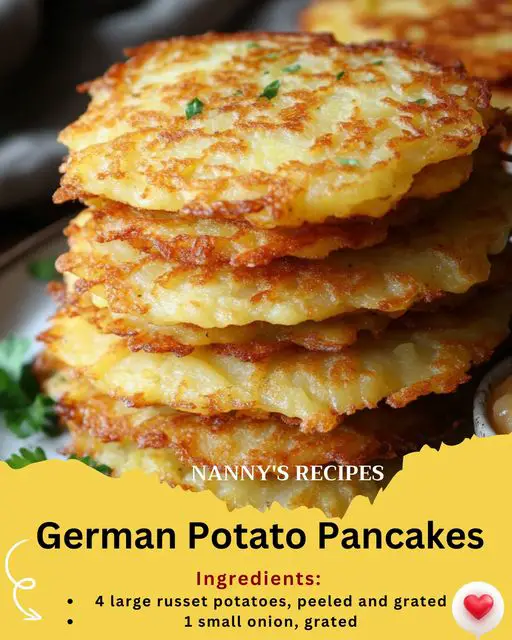
German Potato Pancakes, known as “Kartoffelpuffer” in Germany, are crispy, golden, and savory pancakes made from grated potatoes, onions, and simple seasonings. They are traditionally served with applesauce or sour cream, making them a versatile dish suitable for both sweet and savory preferences. German potato pancakes are enjoyed as a snack, side dish, or even a main course across Germany, especially during festive markets or family gatherings.
These pancakes offer a perfect balance of crunch on the outside and a tender, flavorful interior, making them an irresistible comfort food.

Recipe Details
- Servings: 4 people
- Preparation Time: 20 minutes
- Cooking Time: 20 minutes
- Total Time: 40 minutes
- Type of Meal: Snack, Side Dish
- Meal Classification: Savory, Comfort Food
- Difficulty Level: Easy
The History of German Potato Pancakes
German Potato Pancakes have a long history in European cuisine, dating back to the early 1800s when potatoes became a staple crop in Germany. Potatoes were affordable and versatile, which made them a primary ingredient in many traditional dishes. Kartoffelpuffer were particularly popular among rural communities and during harvest festivals, where they were served hot and crispy. Today, they are a common sight at Christmas markets (Weihnachtsmarkt) across Germany, enjoyed by locals and tourists alike.
The pancakes are usually paired with a side of applesauce for a sweet contrast or sour cream for a savory dip. In some regions of Germany, they are also served alongside hearty meat dishes like sausages or roast pork.
Key Ingredients
Here’s what you’ll need to make these delicious, crispy potato pancakes:
Potatoes: 4 medium-sized starchy potatoes (Russet potatoes or Yukon Gold are perfect for this recipe). Starchy potatoes result in crispier pancakes, while waxy potatoes tend to hold moisture, leading to soggier results.
Onion: 1 small onion, finely grated. The onion adds depth of flavor and balances the natural sweetness of the potatoes.
Egg: 1 large egg, lightly beaten. The egg acts as a binder, holding the potato mixture together while cooking.
Flour: 2 tablespoons of all-purpose flour. Flour helps absorb excess moisture and keeps the pancakes crispy. If you’re looking for a gluten-free option, you can substitute the flour with cornstarch or potato starch.
Salt and Pepper: 1 teaspoon of salt and 1/2 teaspoon of pepper, or to taste. These seasonings bring out the natural flavors of the potatoes and onion.
Oil: 1/4 cup vegetable oil (or enough for frying). A neutral oil like canola or sunflower works best to fry the pancakes to a crisp, golden brown.
Applesauce or Sour Cream: For serving. Applesauce is the traditional sweet accompaniment, while sour cream adds a tangy, creamy contrast for those who prefer savory flavors.
Ingredient Insights
- Potatoes: Starchy potatoes like Russets are ideal because they have a higher starch content, which makes them crispier when fried. For those following a low-carb diet, you can substitute potatoes with grated cauliflower or zucchini, although the texture will be softer.
- Onions: Grating the onion releases its natural juices, which add moisture and flavor to the pancakes. However, if you prefer a milder taste, you can reduce the amount or use green onions as a substitute.
- Oil: Choosing the right oil for frying is crucial. Oils with high smoke points, like canola or sunflower oil, allow you to fry at higher temperatures, ensuring your pancakes are crispy without burning.
How to Make German Potato Pancakes
- Prepare the Potatoes: Start by peeling and grating the potatoes using a box grater or food processor. After grating, place the potatoes in a clean kitchen towel or cheesecloth and squeeze out as much moisture as possible. Removing excess moisture is key to achieving crispy pancakes.Tip: The grated potatoes will begin to oxidize and turn brown quickly. Don’t worry—this won’t affect the flavor. However, to minimize browning, work quickly or keep the potatoes submerged in cold water until you’re ready to use them.
- Grate the Onion: Finely grate the onion and mix it with the grated potatoes in a large bowl. Grating the onion adds moisture to the potato mixture, helping it bind together. You can adjust the amount of onion based on your flavor preference.
- Mix the Ingredients: In a separate small bowl, beat the egg. Add the beaten egg, flour, salt, and pepper to the potato-onion mixture. Stir everything together until well combined. The mixture should be sticky enough to hold together when formed into patties.
- Heat the Oil: Heat the vegetable oil in a large skillet over medium-high heat. You’ll need enough oil to shallow fry the pancakes, so aim for about 1/4 inch of oil in the pan.
- Form the Pancakes: Take about 2 tablespoons of the potato mixture and flatten it into a round pancake (about 1/4 inch thick). Carefully place the pancakes into the hot oil, being careful not to overcrowd the pan.
- Fry the Pancakes: Fry the pancakes for 3-4 minutes on each side, or until they are golden brown and crispy. Use a slotted spatula to flip them over gently. If the pancakes are browning too quickly, reduce the heat slightly.Tip: For extra-crispy pancakes, make sure the oil is hot enough before adding the potato mixture. If the oil isn’t hot enough, the pancakes will absorb too much oil and become greasy.
- Drain the Pancakes: Once fried, transfer the pancakes to a paper towel-lined plate to drain any excess oil. Sprinkle a little salt on top while they’re still hot for extra flavor.
- Serve Immediately: German Potato Pancakes are best served hot and crispy. Serve them with a side of applesauce for a sweet contrast or sour cream for a tangy, savory option. For an added touch, you can garnish the pancakes with fresh herbs like parsley or chives.
Tips for the Perfect German Potato Pancakes
- Squeeze Out the Moisture: This is the most important step for achieving crispy pancakes. Be thorough when squeezing out the grated potatoes. The drier the potatoes, the better your pancakes will crisp up.
- Use Starchy Potatoes: Russet or Yukon Gold potatoes work best because of their high starch content, which helps the pancakes bind together and crisp up.
- Don’t Overcrowd the Pan: Fry the pancakes in batches, leaving enough space between them in the pan. Overcrowding lowers the oil temperature, leading to soggy pancakes.
- Adjust the Seasoning: Taste your mixture before frying the pancakes and adjust the seasoning as needed. Potatoes can absorb a lot of salt, so don’t be afraid to add more if needed.
Variations of German Potato Pancakes
Sweet Potato Pancakes
For a twist on the classic recipe, substitute the regular potatoes with sweet potatoes. The natural sweetness of the sweet potatoes pairs beautifully with a dash of cinnamon and a side of maple syrup.
Zucchini Potato Pancakes
If you’re looking to incorporate more vegetables, add grated zucchini to the potato mixture. Be sure to squeeze out the excess moisture from the zucchini, just as you would with the potatoes, to ensure the pancakes stay crispy.
Gluten-Free Potato Pancakes
To make this recipe gluten-free, simply replace the all-purpose flour with a gluten-free flour blend or cornstarch. The cornstarch will also help the pancakes crisp up nicely.
Nutritional Information for German Potato Pancakes
Here’s an estimate of the nutritional breakdown per serving (based on 4 servings):
| Nutrient | Amount per Serving |
|---|---|
| Calories | 240 kcal |
| Protein | 5 g |
| Carbohydrates | 30 g |
| Fat | 11 g |
| Saturated Fat | 2 g |
| Fiber | 3 g |
| Sugar | 3 g |
| Sodium | 320 mg |
| Potassium | 600 mg |
These German Potato Pancakes offer a great balance of carbohydrates for energy, along with a moderate amount of fat from frying. For a healthier version, you can pan-fry the pancakes in less oil or bake them in the oven at 400°F until golden and crispy.
What to Serve with German Potato Pancakes
These pancakes are incredibly versatile and can be served in a variety of ways:
- Applesauce: The sweet contrast of applesauce is a traditional accompaniment to these savory pancakes. The cool, sweet applesauce enhances the crispy, salty flavor of the pancakes.
- Sour Cream: A dollop of sour cream adds a rich, tangy flavor that balances the crispiness of the pancakes. You can also mix in fresh herbs like dill or chives for an added layer of flavor.
- Smoked Salmon: For a more elegant presentation, serve the pancakes with thin slices of smoked salmon and a drizzle of dill sauce. This combination is especially popular during brunch or festive dinners.
- Sausages: Pair the pancakes with hearty German sausages like bratwurst for a complete meal.
If you enjoy these German Potato Pancakes, you might also like our Old-Fashioned Goulash, a comforting one-pot meal with rich, savory flavors that’s perfect for a family dinner. For a lighter option, try our Lemon Ricotta Pasta with Arugula, which brings together fresh, zesty flavors in a creamy pasta dish.
Frequently Asked Questions
Can I make the potato pancakes ahead of time?
Yes, you can prepare the batter ahead of time, but it’s best to fry the pancakes right before serving to ensure they stay crispy. If you need to make them ahead, fry the pancakes and store them in an airtight container in the refrigerator. When ready to serve, reheat them in a skillet or oven to restore their crispiness.
Can I freeze German potato pancakes?
Absolutely! After frying, let the pancakes cool completely, then place them in a single layer on a baking sheet to freeze. Once frozen, transfer them to a freezer-safe bag or container. To reheat, bake them at 375°F until heated through and crispy.
Why are my potato pancakes falling apart?
If your pancakes are falling apart, it’s likely due to too much moisture in the potatoes. Make sure you squeeze out as much water as possible before mixing the ingredients. Adding a bit more flour or an extra egg can also help bind the pancakes together.
What’s the best oil for frying?
Choose a neutral oil with a high smoke point, such as canola, sunflower, or vegetable oil. These oils can handle the high frying temperatures without burning, ensuring your pancakes stay golden and crisp.
Can I make these pancakes in the oven?
Yes, for a healthier alternative, you can bake the potato pancakes. Preheat your oven to 400°F, place the formed pancakes on a parchment-lined baking sheet, and brush both sides with oil. Bake for 20-25 minutes, flipping halfway through, until they’re golden and crispy.
Conclusion
German Potato Pancakes are a crispy, flavorful, and versatile dish that can be enjoyed as a snack, side, or even a main course. Whether you serve them with traditional accompaniments like applesauce and sour cream or pair them with smoked salmon and sausages, these pancakes are sure to impress. The key to perfect potato pancakes lies in using starchy potatoes and removing as much moisture as possible, resulting in a golden, crispy exterior with a soft, tender inside.
If you enjoyed making these potato pancakes, try exploring more traditional recipes like our Tuna and Hard-Boiled Egg Salad, which offers a healthy and flavorful option, or dive into the rich, indulgent world of Triple Crust Peach Cobbler for a satisfying dessert experience.
We hope you give this recipe a try and share your thoughts in the comments! Don’t forget to share this recipe with your family and friends, especially those who appreciate classic, comforting dishes with a twist.

